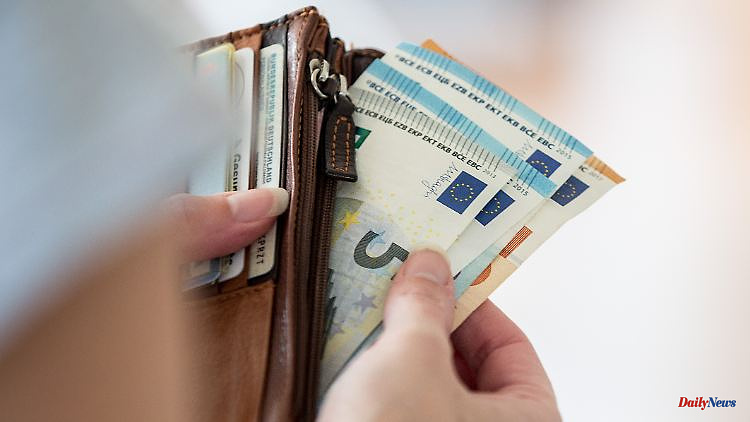At the end of the year, the inflation rate fell well below the ten percent mark again. Prices are up 8.6 percent over the year. The annual average is 7.9 percent - this is still the highest value since German reunification.
Inflation in Germany dropped surprisingly sharply in December. According to the Federal Statistical Office, consumer prices rose by an average of 8.6 percent compared to the same month last year. In November, the inflation rate was 10.0 percent, having climbed to its highest level since 1951 at 10.4 percent in October.
According to the authority, annual inflation in 2022 rose to 7.9 percent. To find a similarly high value, you have to go back a long way: In 1951, the then Federal Republic of Germany had an inflation rate of 7.6 percent. However, the calculation method has changed over time. Even in reunified Germany, there has never been such a high inflation rate as in 2022. In 2021, consumer prices in Germany had risen by an average of 3.1 percent.
Higher inflation rates reduce the purchasing power of consumers, who can afford less for one euro. People's financial leeway is shrinking, and increases in income are being eaten up by inflation. At the end of 2022, inflation in Germany slowed down from a high level. According to the state statistical offices, the one-off emergency aid for gas and district heating customers also made itself felt. The federal government will bear the costs for the down payment in December.
The German state is trying to relieve companies and consumers with billions in aid. In the current year, price brakes for electricity and gas are intended to cushion the consequences of the increased costs for households and companies. Economists assume that this will dampen the rise in inflation in 2023. However, there is no sign of a rapid relaxation of prices: "Inflation is high and will only go down gradually," said Bundesbank President Joachim Nagel recently.
Since the summer of 2022, the European Central Bank (ECB) has been trying to curb inflation in the euro area by raising interest rates. Because if loans become more expensive, this slows down demand and can counteract high inflation rates. At the same time, however, higher interest rates are a burden for the economy, which has already been weakened by the consequences of the war. After four interest rate hikes in a row in the past year and a key interest rate of 2.5 percent, the ECB does not yet see itself at the end of its fight against record high inflation, as ECB President Christine Lagarde made clear after the last central bank meeting in 2022 in mid-December : "We have to go a longer distance."












